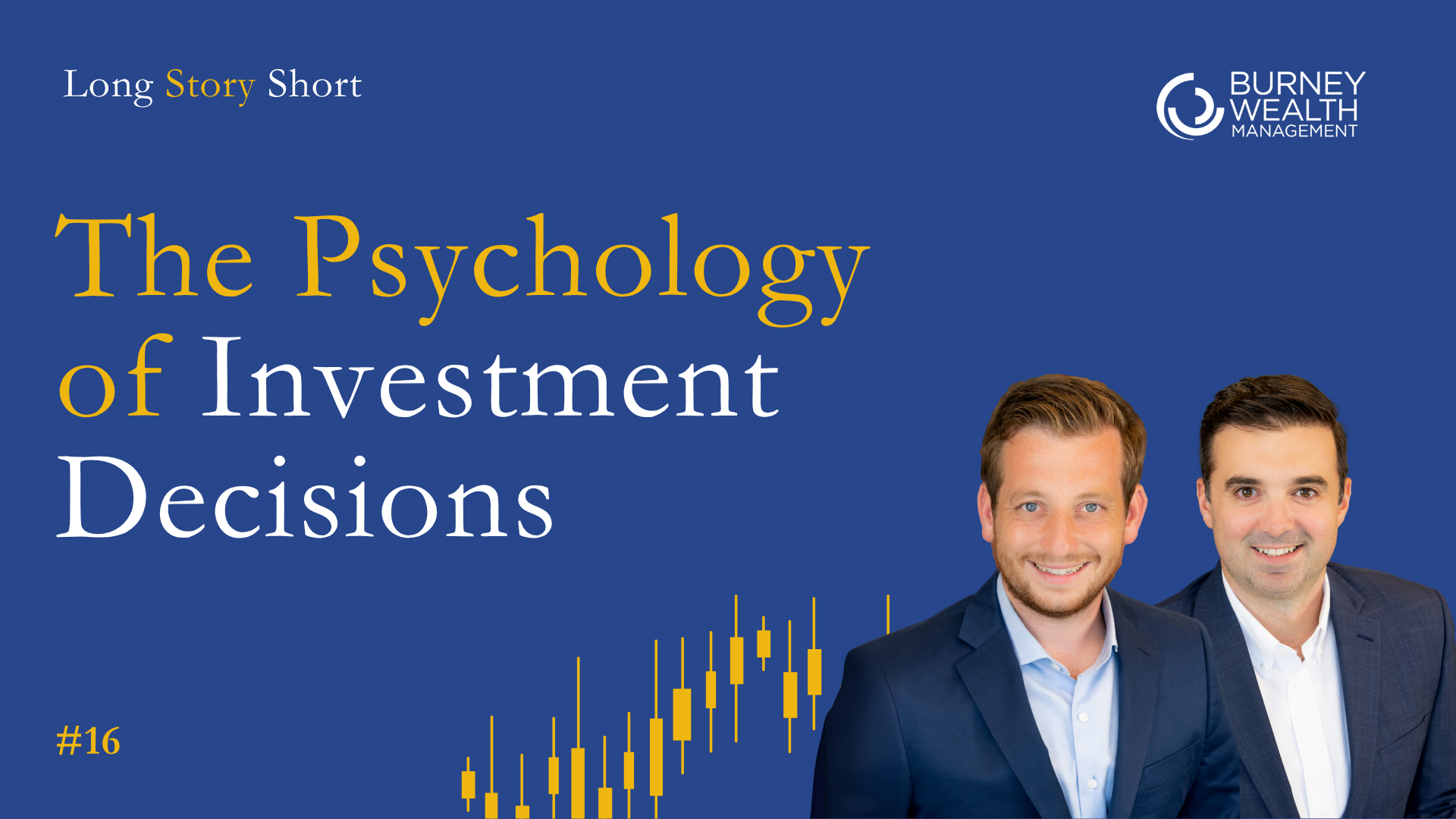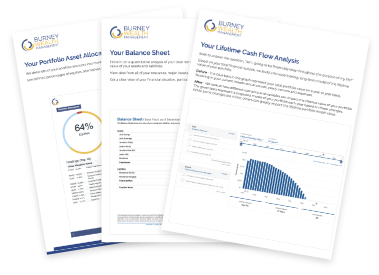The Psychology of Investing: Why We Make Bad Money Decisions | Ep 16

Watch or listen to the episode below:
Andy drops an interesting fact at the start of this episode: his psychology degree taught him that job interviews are pretty terrible at predicting who'll actually succeed in a role. Turns out the same human irrationality that makes interviews useless also shows up when we're making investment decisions.
Economics textbooks love to talk about "economic man" - this perfectly rational creature who always makes optimal choices. Psychology exists because real people don't work that way. We take mental shortcuts. We let emotions drive decisions. We convince ourselves stories that aren't true.
In investing, those quirks get expensive.
Why This Matters More Than You Think
Early behavioral finance research basically catalogued all the dumb things investors do. It felt a bit like pointing and laughing. The field has gotten more sophisticated. These aren't character flaws or signs of stupidity; they're universal mental patterns that helped our ancestors survive but hurt our portfolios today.
Both Adam and Andy deal with these biases themselves. The goal isn't becoming some perfectly rational investing robot, rather it’s recognizing when your brain is playing tricks on you and having systems in place to course correct.
Overconfidence: When Early Wins Make You Dangerous
Hit it big on Nvidia? Caught Bitcoin at the right time? Made money on those ARK funds in 2020?
That early success can wreck you.
People take lessons from one lucky investment and try to apply them everywhere. They start putting too much money into whatever made them feel like a genius. The problem is you're still early on the knowledge curve. You feel like you've figured it out, but you haven't hit the hard lessons yet.
Eventually you learn enough to realize how much you don't know. The best investors Andy and Adam work with maintain that humility. They know markets are complex, unpredictable, and full of surprises. Anyone claiming they've cracked the code after a few wins? They’re setting themselves up for problems.
Confirmation Bias Creates Expensive Echo Chambers
Adam mentioned this is coming up constantly in client calls right now. Markets are at all-time highs, but depending on your politics, you're convinced everything's about to crash.
If your preferred candidate isn't in office, social media will feed you endless content about why the economy's doomed. If you're happy with current leadership, you'll see nothing but reasons to be optimistic. The algorithms know what keeps you engaged.
Andy's strategy: deliberately seek opposing viewpoints with an open mind. If you're convinced stocks are about to tank, force yourself to read credible bull cases. Find people making legitimate arguments for why corporate earnings will keep growing.
This pattern happens under every President. People convinced themselves Obama would tank markets. Then Trump. Then Biden. Then Trump again. They were wrong every single time, but confirmation bias made the fear feel real.
Loss Aversion Hurts 2.5 Times More
Research shows losses hurt about two and a half times more than equivalent gains feel good. That's not a character flaw. It's human wiring from when avoiding predators mattered more than maximizing returns.
In portfolios, this leads to selling winners too early (locking in gains feels safe) while holding losers too long (waiting for them to recover avoids admitting the loss). The disposition effect, as researchers call it, costs real money over time.
Recency Bias Makes Current Fears Feel Permanent
Andy brought up a great example: the bear attack in Yellowstone during their trip. The last attack before that happened in 2001. But having just heard about one makes hiking feel way more dangerous than it actually is.
The same thing happens with inflation. After 2022's shock, every inflation print feels scarier than warranted. After COVID, every virus becomes the next pandemic. Following 2008, every market wobble looked like another housing crisis.
Here's the thing though: the market rarely crashes because of risks everyone's watching. It's the unexpected stuff from left field that causes real damage.
Anchoring to Meaningless Numbers
"I'll sell when it gets back to what I paid for it."
Adam hears this constantly. The price you paid means nothing to the market. While you're waiting for your arbitrary number, better opportunities pass by. The opportunity cost compounds.
Anchoring shows up in other places too. Ask someone to guess Chicago's population after giving them a really low number, they'll systematically underestimate. Give them a huge number first, they'll overestimate. The starting point shouldn't matter but it does.
FOMO and Meme Stock Mania
Remember GameStop? AMC? When everyone on Reddit piles into the same trade, herd mentality takes over. Nobody wants to miss out.
The difference between this and the 2000 bubble: today's hot stocks are actually profitable. Nvidia's still selling chips with huge margins. The mag seven companies keep posting strong results. That doesn't make them immune to crashes, but the fundamentals are different than the dot-com era when companies were just burning cash.
Missing 35% of Global Opportunities
Americans hold about 95% of their stock portfolios in US companies. The US represents 65% of global market cap. That's a pretty big mismatch.
Every country does this. Australians overweight Australia. Japanese overweight Japan. It's comfortable to invest where you live. You understand the businesses, you see them in daily life, you trust your home market.
But you're excluding more than a third of available opportunities. This year international stocks have outperformed the US in many periods, but most investors missed it because they're entirely domestic.
What Actually Works
These biases aren't going away. Your brain will keep trying to take shortcuts. Awareness helps but doesn't eliminate the problem.
What does work: systems that function despite human nature.
Set your asset allocation during calm markets based on long-term goals. When the market freaks out, you've already decided how much risk to take. Rebalance mechanically when things drift from targets.
Evaluate each position on current merit, not what you paid. Run the numbers as if buying today with fresh eyes.
Audit your information sources. If everything confirms your existing views, you're in a bubble.
Work with people who can spot when you're falling into traps. Sometimes you need someone to say "I know this feels urgent, but let's check the numbers."
Next week Adam and Andy tackle estate planning: when trusts actually make sense versus when they just add complexity nobody needs.
Listen to the full conversation on Long Story Short:
The Burney Company is an SEC-registered investment adviser. Burney Wealth Management is a division of the Burney Company. Registration with the SEC or any state securities authority does not imply that Burney Company or any of its principals or employees possesses a particular level of skill or training in the investment advisory business or any other business. Burney Company does not provide legal, tax, or accounting advice, but offers it through third parties. Before making any financial decisions, clients should consult their legal and/or tax advisors.



